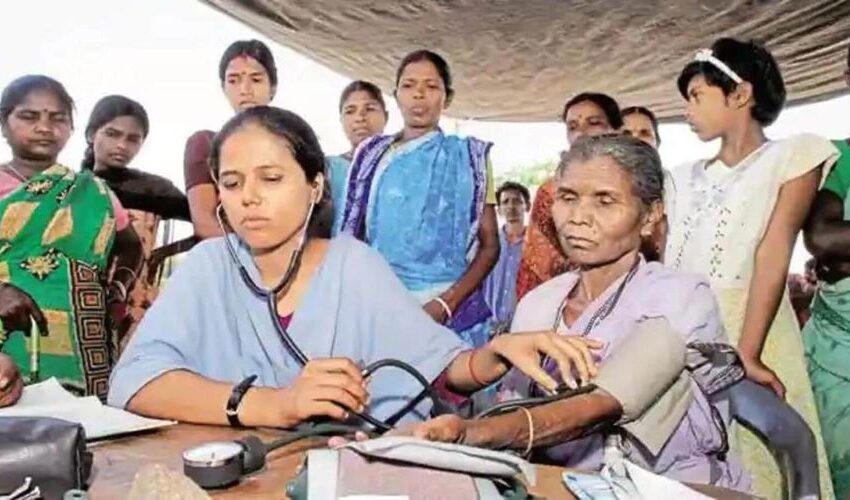Union Budget 2023-24 must focus on Bharat and Rural India

Prateek Ghosal
Other than increasing public expenditure on healthcare to at least 2.5 per cent of the GDP, the budget should aid in providing healthcare where it is needed the most –Bharat. The focus should be on creating accessible healthcare infrastructure, providing adequate supply of doctors, incentivising quality patient care and creating a digital backbone for the future.
Healthcare Infrastructure
In order to attract more private sector investment in Tier 2 and 3 cities of India, healthcare should be given Infrastructure status which will enable access to low-cost funding as well as provide tax benefits, further reducing input costs. While during the COVID-19 pandemic, the RBI incentivised liquidity for emergency healthcare services by the extension of credit under priority-sector classification, this move should be made permanent, particularly for projects focused oncreating infrastructure in Rural India. Further, to ensure success of subsidy schemes and Viability Gap Funding under various state and central policies, the overall construct needs to be further streamlined by enabling allocation of capital within specific timelines, supporting not only infrastructure and equipment funding but also manpower and operational funding, providing flexibility in pricing and creating a robust process to channel patients. This will ensure thatPPP projects are sustainable in the long run.
Manpower Supply
A focused approach on increasing supply of medical professionals as well channelling of doctors to Tier 2 and 3 towns is imperative to support healthcare infrastructure creation.In order to attract private investment for medical colleges, land allotment, subsidies and moratoriums on loans need to be provided. Policies to ensure mandatory rotation of doctors in Tier 2 and 3 cities as well as incentivisation and reallocation support to specialists for both private and public systems can help channel doctors to Bharat. Further, innovative models like Health Maintenance Organization (HMO) schemes that take collective responsibility of patients between specialists in cities and doctors in remote areas can provide greater access to quality care.
Patient Support
While the Ayushman (“PMJAY”) scheme has come a long way in addressing financing support to low-income patients, there is a need to incentivise private insurers to provide affordable insurance packages to the “missing middle” who delay surgeries due to lack of financing.Further, a focus on incentivising primary and preventive care by ensuring higher budgetary allocation towards primary care, increased tax exemption on primary care expenditure as well as expansion of Primary Health Centres (PHC’s) and PPP integration of PHC’s via medical and technology support can help reduce hospitalization expenses in an otherwise fee-for-service system where millions suffer from chronic diseases.
Digital Infrastructure
Under the National Health Authority (“NHA”), the Ayushman Bharat Digital Mission (“ABDM”) is laying the foundation for the digital healthcare infrastructure for tomorrow through implementation of Ayushman Bharat Healthcare Account (“ABHA”) and Universal Healthcare Identification Number (“UHID”) for storage and interoperability of patient records as well as for digital verificationof patients at hospitals. However, a significant proportion of population in Bharat also gets treated under other government schemes like ECHS, ESIC, CGHS etc. These schemes should be brought under the NHA’s guidance and a common platform for all government schemes should be created sharing the same digital foundation to enable universal digitization of all systems and processes. This will lead to better health outcomes, efficient patient management and faster processing of payments aiding in working capital relief of private players who have large backlog of receivables.
Prateek Ghosal is Chief Strategy Officer at Ujala Cygnus Group of Hospitals
What other healthcare stakeholders say

